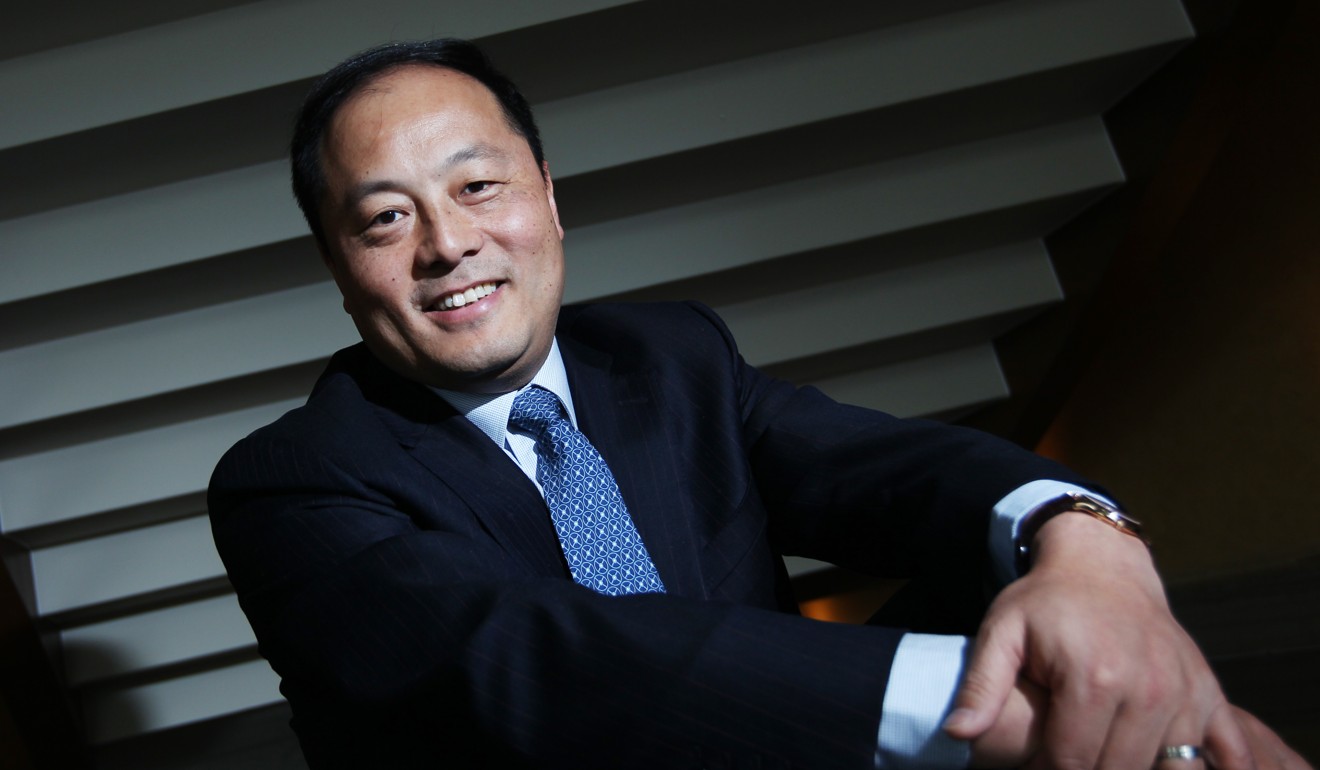
看法动态
Bloomberg: China Kicks U.S. Private Equity Aside as Renminbi Funds Dominate
AddTime:2012-05-15
May 15 (Bloomberg) -- Blackstone Group LP and TPG Capital are among global firms being kicked aside as preferred investors in China, the world’s second-biggest private-equity market.
Investments by Chinese firms rose to $7.8 billion last year, exceeding for the first time the $7.4 billion poured in by U.S. and other foreign funds, according to the Asian Venture Capital Journal, which tracks the industry.
The shift to investors using Chinese currency has hastened a 45 percent drop in investments by foreign funds last year, even as the value of private-equity deals has doubled since 2009. It coincides with China’s stepped-up efforts to develop home-grown firms, such as Beijing-based Hony Capital Ltd., and as individuals and institutions pump money into a market that favors the yuan, also known as renminbi, over the dollar.
“Renminbi fund managers have a huge advantage in terms of speed of execution as well as easier exit opportunities within China,” said Chris Meads, Hong Kong-based global head of investment at Pantheon, a London private-equity company that has invested $2.7 billion in Asia. “Deal flow is being diverted to renminbi funds because it’s just easier for them to transact.”
Yuan private-equity funds have raised $41 billion in the past two years, more than double the U.S. dollar amount in China, according to the data from the venture-capital journal. At the same time, foreign-currency funds focusing on China slumped to $10.2 billion last year from $39.2 billion in 2007, according to an April report by consulting firm Bain & Co.
Domestic Incentive
While the number of foreign-currency funds in China fell to 25 last year from 44 in 2008, domestic ones increased to 129 from 70, Bain said. Their average size more than tripled to $171 million from $54 million.
“If you’re an entrepreneur, you’ve got a choice between a manager who requires a lot of approvals and has a long process, versus a local manager whose cash is just as good but can do a deal over the course of two or three weeks’ commercial due- diligence,” said Meads. “There is certainly an incentive for the entrepreneur to favor the domestic renminbi manager.”
The Chinese government treats local companies that receive U.S. dollars or other foreign currencies as foreign-invested enterprises, which means additional layers of approvals from regulators, even for actions such as opening a retail store, which normally wouldn’t require clearance.
“Many Chinese companies realize taking money from any foreign-currency fund will result in more restrictive scrutiny, and they just can’t stand the red tape,” said Jessie Jin, a Shanghai-based partner at GGV Capital in Menlo Park, California, which has invested in companies including Alibaba Group Holding Ltd. and online video operator Tudou Holdings Ltd.
Raising RMB
As the value of private-equity deals rises, increasing 19 percent to $28.5 billion last year and doubling since 2009, non- Chinese funds risk missing the party. In response, they’re starting to compete by also raising renminbi funds.
Carlyle Group LP, the world’s second-largest private-equity firm, was among the first to announce it had raised renminbi. The company, based in Washington, raised 2.4 billion in the first round of a yuan fund with Beijing’s municipal government in July 2010, after setting up a $100 million joint fund with Fosun Group in Shanghai five months earlier. Carlyle increased the Beijing fund to 3.2 billion yuan in July last year.
Carlyle raised $671 million in an initial public offering this month, pricing below its target after struggling to win investors wary of the track record of buyout firms. Carlyle shares closed Friday 3 percent lower than the IPO price.
‘More Competitive’
Goldman Sachs Group Inc. announced its first yuan fund in China last May, followed by Morgan Stanley a week later. In February, TPG Capital, the Fort Worth, Texas-based buyout firm started by David Bonderman two decades ago, said it raised 4 billion yuan in a first round of fundraising for its renminbi fund, 90 percent coming from private investors in China.
“For the global players aiming for a large market share in China, without renminbi funds, you probably feel more or less insufficient in two or three years’ time,” said Eric Zhang, a Beijing-based managing director at Carlyle. “Certainly it’s much more competitive in the last year or two with many local firms setting up.”
Whether renminbi investments by foreign managers are treated the same as money from domestic private-equity funds is subject to interpretation by local authorities. China hasn’t formulated nationwide rules governing the private-equity industry amid a lack of cooperation among regulators including the National Development and Reform Commission, the China Securities Regulatory Commission and the People’s Bank of China.
Pilot Project
A pilot project pioneered by the city of Shanghai hasn’t cleared up the confusion. Blackstone was approved in 2009 to start a 5 billion-yuan domestic fund, the first global firm to get a go-ahead. The New York-based company expects to complete its fundraising this year. When the program was announced in 2009, the Shanghai government said it would give non-Chinese firms the same treatment as domestic yuan funds as long as they received no more than 5 percent of their capital from overseas private-equity funds registered in Shanghai.
In April, the NDRC overrode Shanghai authorities, issuing policy guidelines that said Blackstone’s fund and those run by foreign managers will be governed under foreign-investment rules, even if they have 100 percent local funding, according to a global fund executive who received the notice and asked not to be identified because the statement wasn’t publicly released.
The rule has raised more uncertainty about foreign funds’ status in China, the person said. Hubert Tse, who advises funds setting up in Shanghai under the program, said it leaves them unlikely to gain local treatment.
Conversion Restrictions
“While the program rules suggest that those funds with only local investors would be subject to national treatment, it remains to be seen whether their investments would also be treated as such by the relevant authorities outside of Shanghai,” said Tse, a Shanghai-based partner in law firm Boss & Young. “In practice, it’s very difficult to raise local money, so almost all funds under this program would probably still need to seek funding from overseas investors, so they are deemed foreign funds in any case.”
Apart from investment restrictions, global funds also have been vexed by currency-conversion restrictions, GGV Capital’s Jin said. Companies receiving investments in foreign currencies can’t exchange them for yuan all at once. They need separate approvals to convert portions of those funds to pay employees or buy equipment, she said.
Pulling Out
Smaller foreign-currency funds are hardest-hit by the shift, and some are pulling out because there isn’t enough appetite for dollar investments, said Tse, who’s advising an overseas firm shutting a $200 million fund in China. He can’t identify the fund because of client confidentiality, he said.
Many Chinese enterprises don’t think U.S.-dollar funds can facilitate a stock listing in domestic markets, where valuations are higher than abroad, said Steve Cai, president of Beijing- based Northern Capital Management Group, which raised a 300 million yuan private-equity fund in 2010 and has a $50 million fund focusing on Hong Kong-listed companies.
The MSCI China Index, which tracks the performance of 564 companies listed in Shanghai or Shenzhen, is trading at 14 times earnings, while the MSCI Hong Kong Index, which comprises 42 Hong Kong-listed Chinese stocks, is trading at nine times earnings. Last year, Chinese companies’ overseas IPOs slumped 43 percent to $11.4 billion from 2009, while domestic offerings rose 29 percent, data compiled by Bloomberg show.
Hony Capital
China has been building a domestic private-equity industry to challenge the dominance of foreign firms. In 2006, the government of the northeastern city of Tianjin set up Bohai Industrial Investment Fund Management Co., whose shareholders include China Life Insurance Co. and the nation’s social security fund, as the first government-backed domestic private- equity fund with 20 billion yuan under management.
Hony Capital, sponsored by state-backed Legend Holdings Ltd., has raised $6.8 billion since it was founded in 2003. Citic Private Equity Funds Management Co., a unit of state-owned Citic Group, China’s largest conglomerate, raised 9 billion yuan since it was set up in June 2008 and is seeking to raise another 10 billion yuan in a second fund, as well as 5 billion yuan as its first mezzanine fund, according to the company’s website.
Domestic private-equity firms have an edge over global ones because they’re more focused in the country, said Hony Capital Chief Executive Officer John Zhao, who raised 10 billion yuan last year for the Beijing-based firm’s second renminbi fund, doubling the size of a previous one in 2008.
Quicker Decisions
“Our decisions will be quicker” than foreign funds, Zhao said, “with a sharper focus and better execution. The global powerhouses can’t afford to spend as much time as we do in China, as they have many markets to focus on.”
While renminbi funds are attractive to companies focusing on the domestic market because such investments are “simpler, faster and more certain,” Zhao said, entrepreneurs seeking to expand beyond China’s borders, especially to list abroad, still prefer U.S. dollar funds.
Executives from Carlyle and Goldman Sachs said some big Chinese companies prefer to deal with well-known foreign investors because of the help they provide in listing abroad, as well as facilitating cross-border acquisitions and helping to improve a company’s operations.
“To stay competitive, we need a local fund and a local team, but we always have to deliver value on top of capital,” said Stephanie Hui, a Hong Kong-based managing director at Goldman Sachs’s private-equity unit.
Controlling Stakes
Executives at global private-equity firms say they’re finding opportunities to invest in transactions that give them control, exceling in an area in which many domestic renminbi funds lack skills. Buyout deals in China more than doubled last year, the highest level ever, according to Bain. Leveraged buyouts increased to $7.5 billion from $5.9 billion in 2010, according to Preqin Ltd., a London-based data provider.
Bain Capital LLC, the Boston private-equity firm co-founded by Republican presidential candidate Mitt Romney, said last May it would acquire Beijing-based China Fire & Security Group Inc., which makes fire-safety products and is traded on the Nasdaq Stock Market, for $265.5 million. Two months later, Apax Partners LLP, a London private-equity firm, bought all of Shanghai-based restaurant chain Golden Jaguar for $250 million.
The Chinese government said in 2006 that overseas investors needed Ministry of Commerce clearance to buy controlling stakes in key industries, well-known trademarks or “old Chinese brands.” It also has the power to veto or scale back deals deemed to affect the “security” of China’s economy.
Foreigners Thwarted
The rules were triggered by lawmakers’ criticisms that the government was selling assets on the cheap, after Goldman Sachs bought 4.9 percent of Industrial & Commercial Bank of China Ltd., the nation’s biggest bank, for $2.6 billion. The investment has generated at least $2.4 billion in revenue for the New York-based firm.
The ruling crimped overseas buyout funds. Carlyle was forced to shelve a plan to buy control of China’s state-owned Xugong Group Construction Machinery Co. in 2008, and its attempt to buy part of Chongqing City Commercial Bank in 2007 failed to win approval. Since then, global private-equity funds have focused mostly on minority investments in private companies.
While the majority of the Chinese renminbi funds are focusing on pre-IPO investments -- companies ready to sell shares to the public within a year and yielding short-term payout -- global firms put more emphasis on bigger transactions that give them controlling rights, ranging from financial decisions to operations, Carlyle’s Zhang said.
Joint Investments
Joint investments between foreign and domestic private- equity funds in China have become another way for foreigners to gain market share, especially when it’s the local partner that has access to opportunities. There were $13 billion of such investments last year, more than double the $5.1 billion in 2010, the Asian Venture Capital Journal said.
“Certainly the space is still crowded, but there have also emerged different deal types,” Zhang said, including those with a controlling equity stake. “For the bigger-ticket deals, we hope our renminbi and foreign funds work together and share the team’s resources.”
Home-grown Chinese private-equity firms also are moving into an area dominated by foreign investors: making overseas acquisitions. In 2008, Hony Capital bought a stake of about 18 percent in Compagnia Italiana Forme Acciaio SpA, an Italian machinery marker. Citic Capital Partners LP, backed by sovereign-wealth fund China Investment Corp., teamed up in January with Chinese construction-equipment maker Sany Heavy Industry Co. to buy Aichtal, Germany-based concrete-pump maker Putzmeister Holding GmbH for 360 million euros, or $475 million at the time.
Raising Dollars
Chinese private-equity firms are raising U.S. dollar funds as well, targeting companies in China seeking to expand in overseas markets. About $3.4 billion was raised by domestic firms last year, seven times more than 2009, according to the Asian Venture Capital Journal.
Global private-equity firms dominated in China for most of the past decade. Newbridge Capital LLC, which became the Asia unit of TPG Capital in the 2000s, was the first foreign investor to control a Chinese bank. Carlyle, which started in China in 1998, bought a 20 percent stake in China Pacific Insurance Group Co. between 2005 and 2007, its biggest purchase in China.
Special Treatment
“All these guys enjoyed very good access in the market before because there was no local competition,” Hony Capital’s Zhao said. “What happened in the past years is that domestic investors have the wallet, and China started to remove the special treatment to foreign investors.”
China began eliminating tax incentives for foreign companies in 2008 after its economy had grown about 90-fold in three decades. In December 2010, the government started charging foreign companies two taxes that domestic firms pay, according to a statement by the State Administration of Taxation.
“Finally, a level-playing ground for both domestic and international investors has emerged,” Zhao said.
While competition has intensified and global firms face multiple bidders for good businesses in China, the number of investable companies also is rising, said Goldman Sachs’s Hui. Funds dedicated purely to China raised $23 billion last year, second only to the U.S. with $40 billion, according Preqin.
The U.S. is the world’s biggest private-equity market with about $150 billion of investments, according to data from the Boston Consulting Group. China was second with about $30 billion, and the U.K. had $10 billion, the consulting firm said.
“There are still attractive deals for foreign investors in China,” Pantheon’s Meads said. “They have to work a lot harder than they have in the past to get them.”




